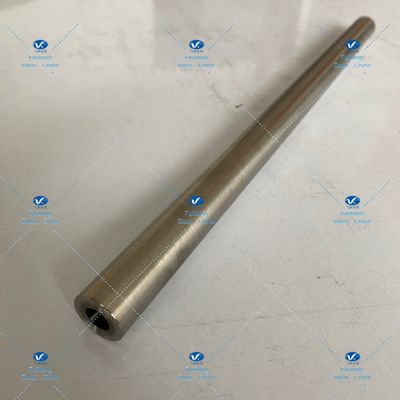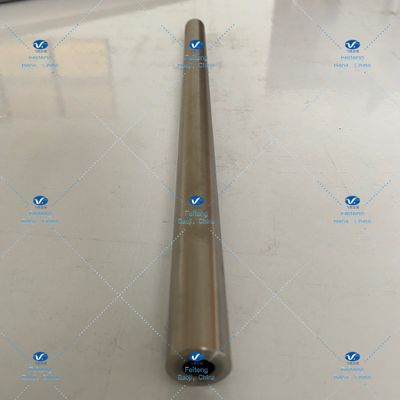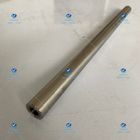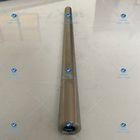ASTM B861-06 Titanium Seamless Tubes 16.5OD*8*38
| Place of Origin | Baoji, Shaanxi, China |
|---|---|
| Brand Name | Feiteng |
| Certification | GB/T19001-2016 idt ISO9001:2015 GJB9001C-2017 |
| Model Number | Titanium Alloy Tube |
| Minimum Order Quantity | To be negotiated |
| Price | To be negotiated |
| Packaging Details | Wooden case |
| Delivery Time | To be negotiated |
| Payment Terms | T/T |
| Supply Ability | To be negotiated |
| Name | Titanium Alloy Tube | Application | Industrial,Medical,exhaust Hanger,chemical,Condenser |
|---|---|---|---|
| Standard | ASTM B861-06 A | Package | Wooden Case |
| Grade | Gr5 | Size | φ16.5*φ8*38 |
| Advantage | Light Quality,High Strengthen Anticorrossive,Corrosion Resistance,acid And Base Resistance | Shape | Round |
| Highlight | ASTM B861 06 Titanium Seamless Tubes,Titanium Seamless Tubes 16.5OD,Titanium Alloy pipe 16.5OD*8*38 |
||
Titanium Alloy Tube Gr5 ASTM B861-06 16.5OD*8*38 Titanium Alloy Titanium Pipe Titanium Seamless Tube
|
Name |
Titanium Bars |
|
Grade |
Gr5 |
|
Transport Package |
Wooden case |
|
Origin |
Baoji, Shaanxi, China |
|
Port of delivery |
Xi'an port, Beijing port, Shanghai port, Guangzhou port, Shenzhen port |
| Shape | Round |
Titanium is a very active metal, which is very stable in medium. Titanium has corrosion resistance in oxidizing, neutral and weak reducing medium. Because of the great affinity between titanium and oxygen, a dense, strong adhesion and large inert oxide film is formed on the surface of titanium in air or oxygen-containing medium to protect the titanium matrix from corrosion. Even mechanical wear, it can heal or regenerate quickly. Therefore, titanium is also a metal with strong passivation tendency. In order to improve the corrosion resistance of titanium, surface treatment technologies such as oxidation, electroplating, plasma spraying, ion nitriding, ion implantation and laser treatment were developed to enhance the protection effect of titanium oxide film and obtain ideal corrosion resistance effect. In order to meet the needs of metal materials in the production of sulfuric acid, hydrochloric acid, methylamine solution, high temperature wet chlorine and high temperature chloride, a series of corrosion-resistant titanium alloys such as titanium molybdenum, titanium palladium and titanium molybdenum nickel were developed. The application of ti-32 molybdenum alloy in titanium castings, the application of ti-0.3 molybdenum-0.8 nickel alloy in the environment where cracks or pitting often occur, or the application of ti-0.2 palladium alloy in the local area of titanium equipment have achieved good application results. The new titanium alloy can be used for a long time at 600 ℃ or higher. Compared with steel and copper, titanium has the longest vibration attenuation time after mechanical and electrical vibration. Titanium can be used as tuning fork, vibration element of medical ultrasonic crusher and vibration film of advanced audio speaker. Titanium is a non-magnetic metal, which will not be magnetized in a large magnetic field. It is non-toxic and has good compatibility with human tissue and blood, so it has been widely used in the field of medicine. This characteristic of titanium shows its high yield strength ratio (tensile strength / yield strength) and poor plastic deformation during forming. Because the ratio of yield limit to elastic modulus of titanium is high, the resilience of titanium is high. Although the thermal conductivity of titanium is lower than that of carbon steel and copper, due to its excellent corrosion resistance, the wall thickness of titanium can be greatly reduced, and the heat transfer between the surface and steam is droplet condensation, which reduces the heat group. The thermal resistance of titanium can also be reduced without scaling on the surface, to significantly improve the heat transfer performance of titanium.
Titanium Alloy Tube have good thermal strength, good weldability and excellent corrosion resistance. Its disadvantage is low strength at room temperature. It is usually used as heat-resistant and corrosion resistant material. Titanium alloy is widely used in various fields because of its high specific strength, good corrosion resistance and good heat resistance. The industrial production of titanium began in 1948, and the demand of the aviation industry made the titanium industry develop at an average annual rate of about 8%. At present, the annual output of international titanium alloy processing materials has reached 4 million tons, and there are nearly 30 kinds of titanium alloy trademarks. Titanium alloy is mainly used to manufacture aircraft engine compressor parts, followed by layout parts of rockets, missiles and high-speed aircraft. In the mid-1960s, titanium and its alloys have been used in general industries, such as electrodes for electrolytic industry, condensers for power stations, oil refining and desalination heaters and environmental pollution control equipment. Titanium and its alloys have become an anticorrosion material.
Product advantages
1. Convenient handling.
2. Strong corrosion resistance
3. low fluid resistance
4. High mechanical strength







